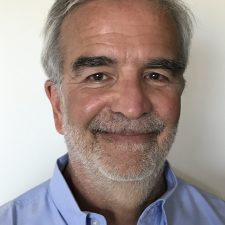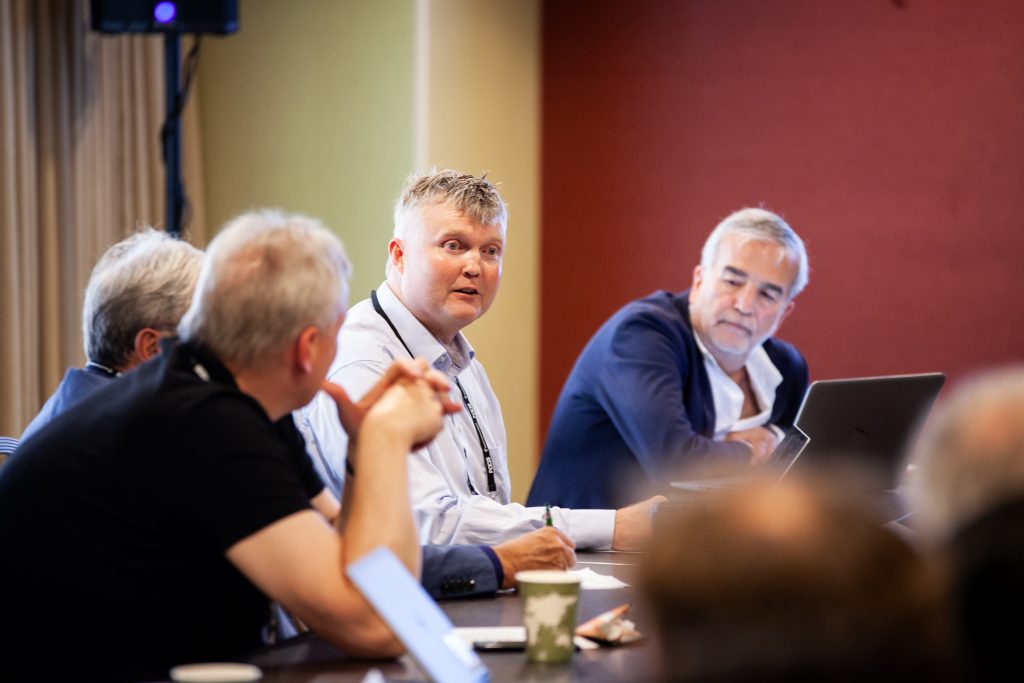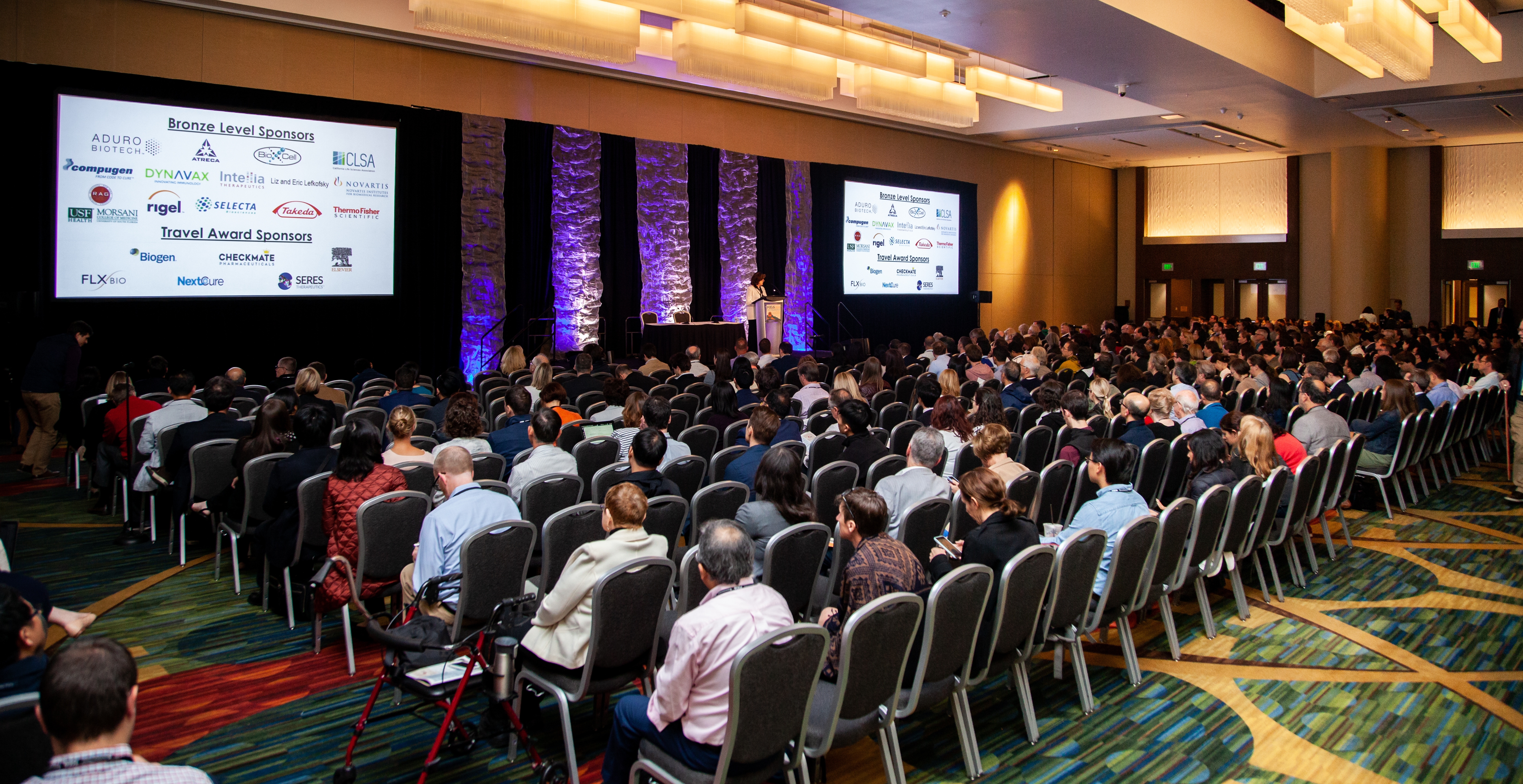FOCIS Education Committee Chair (2019-2020)
FOCIS FCE Chair (2016-2018)
About Ignacio Anegon M.D

Introduction
To introduce our membership to Dr. Anegon, we interviewed him about his career path, proudest achievements and why he chose to lead the Multinational FCEs.
Read the transcript below or listen to the audio.
Career path
1. What attracted you to the field of immunology?
I became attracted to immunology early on when I was a medical student in the early 1980’s. At that time, it was a very complex and fascinating system with different cells. There weren’t as many cells as there are now, but there were already several different types and they weren’t very well known. It was challenging, but intellectually it was very stimulating. I could also see clearly that the new system had an impact not only the diseases of the immune system itself, but also on other diseases that were not necessarily immune in their origin but in which the immune response was also playing a role. It was very broad.
2. After you received your medical degree from Universidad de la Républica del Uruguay, how did you decide to do your postdoctoral work at the University Hospital of Barcelona?
At the time, research was difficult in Uruguay because of political and economic climate. Also, international contacts were scarce. At that time, there was no internet or email, from Latin America few people would get in contact with colleagues in other countries. I did have one Dr. Jordi Vives, a researcher who led the best (at that time) immunology lab located in Barcelona. The lab was beginning to generate monocolonal antibodies to define immune cells. I wanted to learn that technology and that application and that’s why I chose to join his lab. This was a good move, as I ran the first cytofluorumeter spectrometer in Spain, and I participated in the first international workshop to define CD leukocyte antigens. That was the beginning of what we know nowadays – that we hundreds of these CD markers. That workshop was in Boston, Massachusetts, and was the first in the world. It was new and cutting-edge at the time.
3. You then moved to the University of Pennsylvania to become an Associate Scientist at the Wistar Institute. What motivated you to make this move?
I thought it was important to have an experience in an American University. I also wanted to learn more immunology and molecular biology (which was becoming essential). When I went to work at the Wister Institute at the University of Pennsylvania, it was a very good place. I had the chance of working with human NK cells, Fc gamma receptors, and I also learned molecular biology techniques that we applied to human immune cells. All this was new and exciting. I had a very good boss at the time, Bice Perussia, who was associated with Giorgio Trinchieri. They were excellent scientists with very good labs.
4. In 1988, you moved to Nantes, France to become the visiting scientist at the Institut National de la Santé Et de la Recherche Médicale INSERM, and then received a permanent position. What are some of your proudest moments since you’ve been working there?
I am proud of the career that I’ve had at INSERM – and all of it has been through competitive examinations. All the positions were given by scientific committees who are nationally-based and independent – with no politics. The focus of the examination is on the quality of the candidate and the quality of the project.
Now I have the highest position in the French research system, which is a source of pride for me.
I also like that I have initiated areas and topics of research that were not previously covered at Nantes – and in some cases not even in France. I initiated the generation of genetically modified rats; and I created an open facility that works with many groups in France and abroad (in both academia and industry). This area of my work is very active since because we have incorporated many new technologies, for example genome editing using zinc nucleases, TALENs (Transcription activator-like effector nucleases), CRISPR (clustered, regularly interspaced, short, palindromic repeats), we were the first ones to generate knockout rats using ZFNs and TALENs.
I also initiated work on application of gene therapy techniques in organ transplantation, which was new at that time and I was for several years editor-in- chief of an international journal in this area, Current Gene Therapy.
I also initiated work on CD8 Tregs which are less known as compared to CD4 Tregs, and this originated many publications and patents. We are now also creating a company based on this research.
Finally, I have organized and led many scientific meetings in the area of immunology and transgenesis.
I directed a large INSERM research center that has grown to 170 people in nine years, and continues to grow even now. The center was bigger and stronger when I left compared to when I took over.
I think that promoting young researchers is important and I have done this with those that have worked with me during the years and some of them have been successful scientists with whom I keep working.
Finally, our center was recognized by FOCIS as a FOCIS Center of Excellence and my work in FOCIS is also source of satisfaction.
5. You are now the Director of Research at the INSERM and scientific director of the Nantes Rat Transgenesis platform, you were Director of the INSERM unit 1064, and the Editor-in-chief of the journal Current Gene Therapy. Do you miss anything from the earlier part of your career?
Performing experiments was exciting but difficult also. I remember the excitement of seeing the results coming out of machines. I still always see the scientific results not as immediately as before, but when students or fellows bring the results to the meetings, but I still always get very excited when I see them, so I still have that joy.
And what I also enjoy now, is having the possibility of imagining the hypotheses, projects and experiments. This is something you do less of when you are young and performing the experiments.
And I also think that organizing research within a larger vision is also very exciting and interesting. For example, now I’m the head of the network of immunology laboratories located in the north of France, and they have significant funding. I like to create new technologies or platforms, or programs for funding students, or for defining new areas of research.
6. Looking back on your career, is there anything you would have done differently?
I took very important and significant decisions based on my career, like for example leaving my country of origin. But at same time, I did not always make decisions in my life that were necessarily work-based. I also took into considerations other things like quality of life, family, the kind of country/society in which I wanted to live. I would do the same thing again. For younger people, it’s important to follow our own professional obligations and motivations of course, but at the same time to put a limit to it. I think you must put into consideration of other things – not only work.


Work with FOCIS
7. Switching gears, how did you first get involved with FOCIS?
Well, first I went to some FOCIS meetings because they were scientifically interesting. I went to the first one, which was in Paris, and I liked then the kind of meeting with lots of translational research. I also got involved with FOCIS because friends whom were and are very important scientists – like Jeff Bluestone, or Matthias von Herrath were already involved with FOCIS.
Then, I became the director of our research center and I thought about [our center] becoming an FCE which would be good for us, because we were already doing basic translational and clinical research that FOCIS was promoting. But at that time, it was more restricted to transplant immunology. Nowadays, we have in the Nantes FCE a much larger immunology community, with autoimmunity and cancer. Later, Abul Abbas invited me to become the FOCIS Multi-national FCE Chair, and I was very happy with this also.
8. How has FOCIS changed your world?
Well, the FOCIS meetings are excellent scientifically and opened my mind to other experimental models and pathologies. I have integrated different immunology specialties in my work, like autoimmunity, that I’ve learned and have come to appreciate through FOCIS. Many great scientists go to FOCIS meetings and I have also incorporated some these contacts in my world.,
9. What are some of your biggest accomplishments as FOCIS Multinational FCE Chair?
I’ve promoted the creation of new FCE’s in Europe and in Latin America, so I’m happy with that because that was one of my goals. And there are several new FCE’s in the last couple of years. Also, I like the idea [and it’s been successful] of creating FOCIS courses and meetings in Europe and Latin America, and that’s how we generated the first FOCIS course on basic and translational immunology in Europe in 2016. And now in 2017, there is the second one, and there will be European courses in 2018 and 2019. And this year, we held the first FOCIS course and meeting in Latin America (in Chile), and it was successful. And we are going to have a new FOCIS event in Latin America (in Cancun, Mexico) next year during the Meeting of the Latin American Association for Immunology, so that’s something that I’m happy about.
10. What are your future goals as the FOCIS Multinational FCE Chair?
I would like to develop these kinds of activities in Europe and Latin American, and I think it would be great if we could do it in Asia, and eventually in other regions. We already have plans to hold a course in India in early 2019.
11. If your colleague asked you why they should join FOCIS, what would you tell them?
The FOCIS meetings are very good – they have excellent science. They are also a very good opportunity for networking – there are excellent scientists going there and there is plenty of time during the meeting also to do this. FOCIS organizes multiple opportunities for FOCIS members and FCEs to get together.
I think the FCEs are also an interesting aspect of FOCIS.
The courses that FOCIS organizes are excellent, and that’s another reason that distinguishes FOCIS from other academic societies.
12. Do you have any advice to share with someone who is just starting out in the field?
I would say, first, be original in your research, do things that have not been done – that’s essential. And then always stay updated and on the cutting-edge of new technologies, and join FOCIS!
